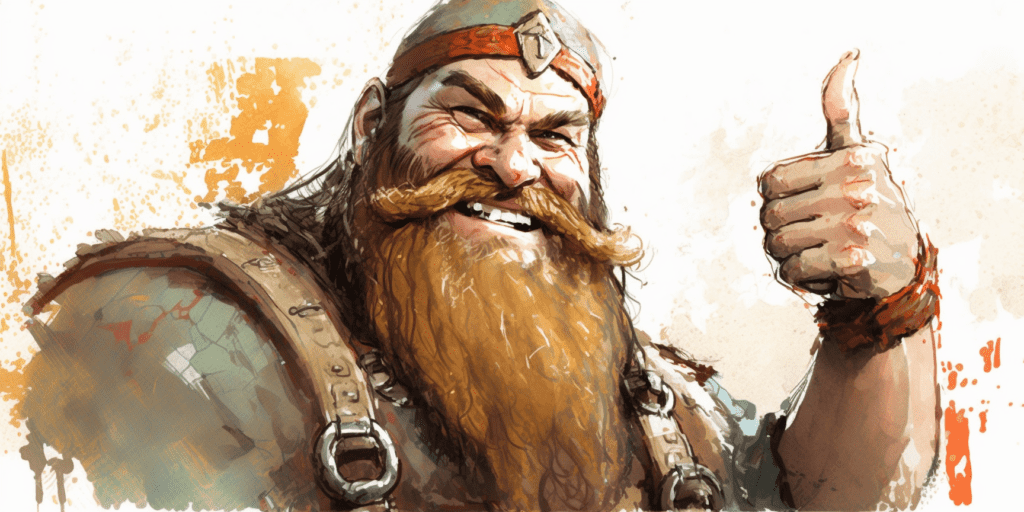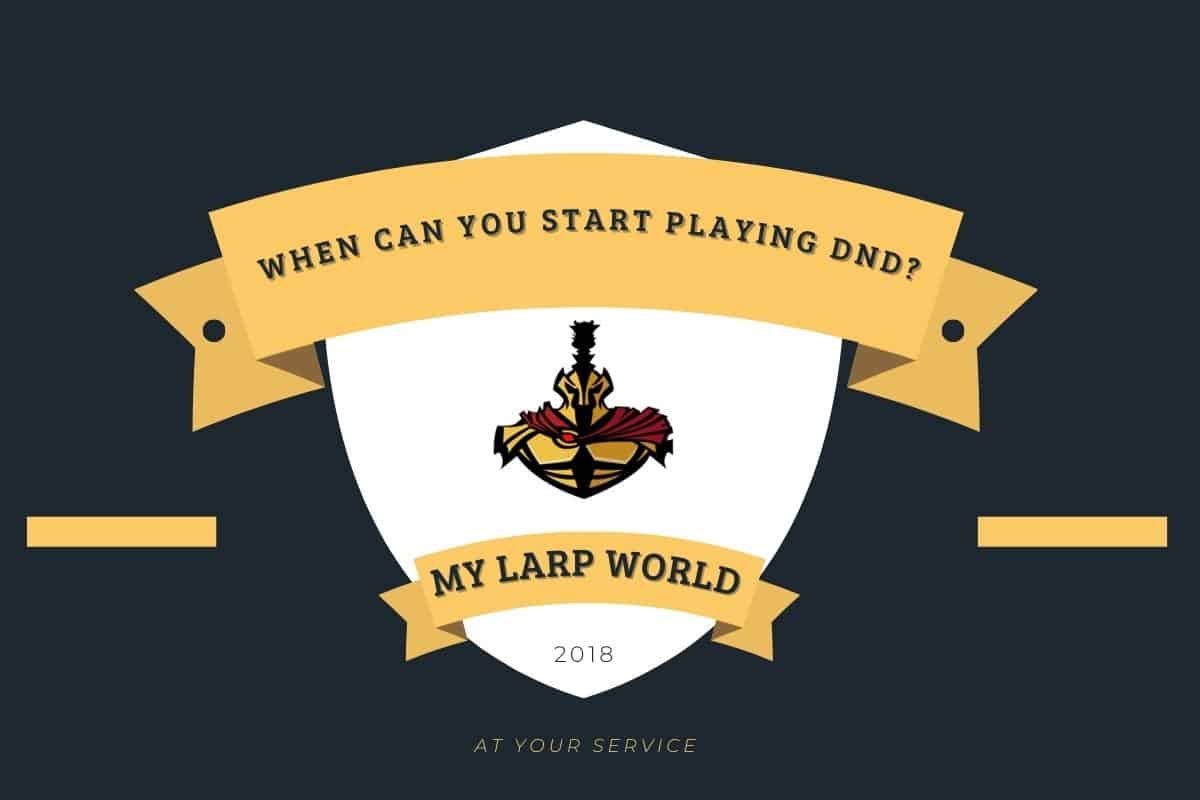A lot of younger people are constantly on the lookout for new and exciting hobbies. Sometimes, they want to look for something new, but some younger people just haven’t found anything that really gets to them in a positive and lasting way.
As an effect of this, there are a lot of people that are looking into DnD as a hobby. I and a lot of other adults enjoy this activity on a weekly basis, but how old should you be to start playing DnD?
There aren’t any official restrictions for how old you need to be to start playing DnD. A lot of it has to do with individual factors. For example, if you think your kid is capable of doing basic math and staying focused for a longer period of time without being bored, DnD can be a good idea. A lot of people consider 10-12 to be a good age to start.
This is just a recommendation, and as I mentioned, there are other factors to consider when answering this question. Keep reading to find out if you should start playing DnD at your age.
How Old Should You Be to Start Playing Dungeon and Dragons?

Something that we need to make clear from the start: DnD isn’t intrinsically violent, bloody, or anything of the sort. A game of DnD is made up of storytelling and influencing this storytelling. You can make it as age-appropriate as you want to.
Now, DnD is largely a so-called “theatre of the mind”, which means that if your kid likes to read, for example, there’s a good chance that he or she will love DnD. DnD isn’t necessarily super-nerdy, either, you make it into whatever you want.
Something that can make DnD difficult for some kids is the vast ruleset. There are many rules, many involving different stats, some basic math, and other things that may be logically challenging.
However, you can always adjust these things for a younger party. That’s why the 10-12 recommendation is just that – a recommendation. DnD doesn’t have an official age rating, because you can change and fix whatever you want within the game.
Can Kids Play DnD?
Kids can, then, indeed play DnD with the right amount of regulation. Even kids younger than 10-12 can play it. Something to remember is that some of the adventure books contain some violent content, so I would suggest sourcing the material and maybe skipping the parts that you think are inappropriate. Just come up with something else! remember, DnD not only allows but encourages creativity.
As I mentioned before, the rules are the biggest hurdles. For example, there is some basic math involved, and the kid also needs to have some patience, since some calculations and pauses can take a while.
For example, players sometimes need to sit and listen to narration for 10-15 minutes, and this kind of thing is very common. So, if the child in question has certain attention deficits or just has a lot of energy in general, there might arise some minor issues there.
Look into downloading some easier character creation stuff, specifically designed to help kids get into DnD. This is a very good example of such a resource.
Trying never hurts, though. You don’t need to spend a bunch of money to get into DnD, which means that you aren’t really losing anything by trying and failing.
Related Articles: The Complete Guide On How To Start Playing D&D
What Should You Consider When Starting DnD?

Like with all new things, there are some things to consider. Let’s try to go through some tips for beginning players, so you can have these things in mind when introducing a young person to DnD.
- Do you want to play with some digital tools? They can be very helpful – look up useful resources for dice rolling, character creation, and even map generators if you want to
- Don’t jump into the action right away – before you do, make sure to have a session where you go through the basic rules and create characters so that there are fewer road bumps when you start playing
- DnD adventures come in many forms – consider playing shorter “one-shot” adventures to start with. This can help young people hold focus for the entire thing. Eventually, scale into longer adventures
- Watch some videos of really high-level DnD games to get some inspiration. There are a lot of these available on YouTube for example
- Download the free rules PDF and read them if you’re interested
These are some of the things that are good to keep in mind. You can also buy the Player’s Handbook if you want to really get started. This book covers everything that a new party of players needs to get going.
What Are the Benefits of Playing DnD?
Let’s get into some of the potential benefits of playing DnD. Sure, DnD is mainly a source of fun, but for younger folks, in particular, playing DnD can really help with certain things. Let’s list some of the positive benefits that can occur from playing DnD.
- Math development – As I mentioned earlier, playing DnD involves calculating different outcomes and stats, which means that kids have a special opportunity to actually have fun while learning math. I’ll bet you that they don’t even realize that they are effectively practicing math while playing DnD.
- Reading skills – DnD involves reading a lot of information, which can lead to improvement in reading skills (go figure!). Plus, verbal skills such as efficient communication are important things to learn in DnD.
- Social and emotional skills – Young people’s social skills can be improved a lot by playing DnD because you need to appropriately convey feelings and actions in a manner that’s proper for a DnD game. A lot of parties run their games with more strict roleplaying, too, where you will need to “voice act”. This can have a lot of benefits.
- Teamwork skills – Playing DnD relies on teamwork. You will have to work with the party at all times. This goes for combat, dialogue, puzzle-solving, and more.
These are just some of the benefits. There are more to be had, depending on the person in question. So, to summarize: Playing DnD can be a really productive hobby, more so than other hobbies.
How Do You Introduce DnD to Younger People?

Is there a certain way to introduce DnD to people? Sure, there are some things to think about. However, the prospective players need to have some sort of interest beforehand, or it won’t work.
DnD is simply too time-invest-heavy to do if you’re not particularly interested, in my opinion, and chances are that the rules and things like that won’t stick to their mind.
If friends or your kids have expressed interest in playing, however, there are a few things you can do (including some tips that I’ve already mentioned).
For example, you should start playing casually. People can have a prejudice against the nerdiness of DnD. Don’t overdo the roleplay, let them have a lot of freedom in creating their characters.
Also, don’t go through too many rules with them in the beginning, scale it up as you go. A lot of people quit DnD because they find all of the information to be overwhelming.
Finally, consider starting with something like Simple DnD. This is a DnD roleplaying system designed for kids, and it works fantastically in my experience.
Is DnD For All Ages?
Dungeons and Dragons is truly a game that can be enjoyed by people of almost all ages. It might not be suitable for kids the age of 5 or younger, but it can be enjoyed and experienced by everyone.
The game can be adjusted to suit the players, and an older and more experienced Dungeon Master can aid players in their introduction to the game. Dungeons and Dragons can also be played by the elderly, not only as a way to find entertainment but also as a way to socialize with others.
The game provides players with skills that they might benefit from having in other situations too, and one can truly feel refreshed and fulfilled after playing a session of Dungeons and Dragons with good friends. I don’t think there’s a way to limit that to a certain age.

